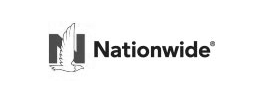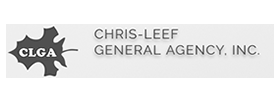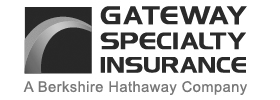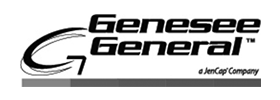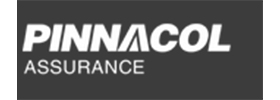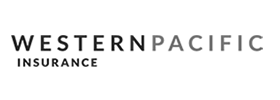Commercial | Business Auto Insurance
As a business owner, you need some of the same commercial insurance coverages for the cars, trucks, vans, or other vehicles used in your business as you do for vehicles used for personal travel. At Aspen Insurance Agency, a commercial auto insurance broker, we offer all the standard coverage plus many options for the vehicles you own, lease or rent for use in your business. Our licensed agents in Denver, CO can help you choose a package of coverage that fits your business needs.
Your Business owners Policy (BOP) does not provide any coverage for vehicles, so you must have a separate policy. Most states require you to purchase liability insurance for bodily injury and property damage that may result from a vehicle accident occurring while you or someone from your organization is driving on business. Many states also require you to have uninsured/underinsured motorists coverage and/or medical payments coverage (known as Personal Injury Protection (PIP) in some states). You can also purchase physical damage coverage for vehicles your business owns, leases or hires.
The Business Auto Coverage Form (BACF) is the most commonly used contract for providing business auto liability insurance. Although the form refers only to "autos," autos are defined to include cars, trucks, trailers, vans or other vehicles designed for use on public roads.
Each vehicle you use in your business can be separately "scheduled," or listed on your policy along with corresponding coverages. In other words, you can choose different coverages, for your various vehicles, depending on the vehicle's characteristics and the coverage you need for it.
Do I Need a Business Auto Policy?
Your insurance agent will ask in detail how you use vehicles in your business; who will be driving them; whether you own, rent or lease; and whether you and your employees are likely to be driving their own cars for your business. The answers to these questions will indicate the types of coverage you need.
In general, only a BACF can provide the level of liability protection-the recommended minimum is $500,000-that even a small business needs to cover the potential damages in a serious accident.
Will My Personal Auto Policy Cover Business Use?
Your personal auto policy provides coverage for some business use of your vehicle. Similarly, your employees' personal auto policies cover some business use of their vehicles too.
A personal auto policy is unlikely to provide coverage, however, if the vehicle in question is used primarily in business. It will not provide coverage for any vehicle owned by a business. The personal auto policy, whether yours or your employee's, may not have enough coverage to protect your business.
For example, imagine you are driving your car to a business meeting while having an intense conversation on your cell phone with one of your sales reps. By the time you notice a van ahead of you has stopped to make a left turn, it's too late to avoid a collision. The driver and five passengers are injured in the accident. They sue you and your company.
If you have only a personal auto policy, your insurer will probably defend you personally and pay the claim-up to the policy limit. Your personal auto policy insurer will not defend or pay damages on behalf of your business, however.
For a very serious accident or one with a number of injured people, your personal auto policy may not be enough to cover the damages. In that event, the injured parties would likely sue to collect damages from your business.
If you or your employees are driving personal vehicles on business and relying on your personal auto policies, be sure you and they have sufficient liability coverage to protect your business in the event of a serious auto accident.
Do not expect to rely on a personal umbrella policy for any claims that arise from business use of a vehicle. Typically, the personal umbrella excludes all claims occurring in the course of a business endeavor.
What Vehicles Are Covered?
The scope of coverage in the business auto policy can be either broad or narrow, depending on your choice of options. It could, for example, be written to apply only to one specifically described auto. Or, as an example of very broad coverage, the policy could be written to apply to the named insured's liability exposures arising out of the use of any auto.
In general, you have three options for which vehicles you choose to cover.
Autos Your Business Owns
- All autos your business owns, hires or leases
- All autos used for the business, including those that your business does not own, hire or lease
Most businesses should buy the third type, since that is the only coverage that protects the business from liability when an employee or owner is driving a personal vehicle on business.
Be Sure the Right Insured Is on the Policy
An insurance contract usually requires that the owner of a vehicle be named in the policy "Declarations" as the "principal insured." If you drive any of the same vehicles for both business and pleasure, make sure you tell your insurance agent who holds the vehicle's title, you personally or your company. This will avoid problems if you need to file a claim or a claim is filed against you.
Physical Damage Coverage
The three types of physical damage coverage for motor vehicles are collision, comprehensive and specified perils.
- Collision coverage is for losses that result from the collision of a covered vehicle with any object or from the vehicle overturning.
- Comprehensive coverage is the broadest form of auto physical damage coverage, because it provides for losses from any cause except collision and overturn (insured under collision coverage) and a few policy exclusions, such as wear and tear, mechanical breakdown and acts of war. Among the causes of loss covered under comprehensive are flood, fire, theft, glass breakage, falling objects, explosion, earthquake or colliding with a wild bird or animal.
- Specified perils coverage covers many of the same perils as comprehensive, but because it covers only "named" perils-those specifically named in the policy-it has a lower premium. It is sometimes referred to as "fire, theft and Combined Additional Coverage (CAC)"
If your businesses has a large fleet of vehicles, over time, it may be more costly to insure the fleet for physical damage than it is to retain the risk, that is, pay for any physical damage directly rather than by insurance. Regardless of how many vehicles your business has, it may be cost effective to carry physical damage coverage only on the newer or more valuable vehicles.
What Will the Insurer Pay for Physical Damage?
The amount an insurer will pay on an auto physical damage or theft claim depends on the market value, known as Actual Cash Value (ACV), of the vehicle at the time of the loss. The most that will be paid is the lesser of the ACV or the cost to repair or replace the vehicle with one of like kind and quality. In the event of a total loss, the ACV is adjusted for depreciation and the vehicle's physical condition. Thus, the older the vehicle and the worse its condition, the more its value has depreciated and the less the insurer will pay.
The insurance company may pay you the value of the loss in money or, at its choice, it may repair or replace the damaged or stolen vehicle. In case of a theft, it may return the stolen vehicle to you with payment for any damage caused by the theft.
Looking for commercial auto insurance in Colorado or elsewhere? Contact Aspen Insurance Agency in Denver, Colorado today to request a quote and find out more information. We offer policies in the following states: Arizona, California, Colorado, Delaware, Florida, Hawaii, Idaho, Illinois, Indiana, Kentucky, Michigan, Minnesota, Missouri, Montana, Nebraska, New Jersey, New York, North Carolina, Ohio, Oregon, Pennsylvania, South Carolina, South Dakota, Tennessee, Texas, Utah, Virginia, Washington, Wisconsin, and Wyoming.
Why Choose Aspen?
- Family-Owned Business
- Serving clients nationwide
- 24-hour max response time
- Best in class discounts
- Complimentary policy reviews
- Dedicated and experienced agents
- Insurance made EASY
- 40+ Top Rated carrier partners
- Advocating for our clients, NOT the insurance carrier
Servicing these States
Aspen Insurance Agency has served the Denver community for over 25 years and has since expanded to help clients in the following states:
- Alabama
- Arizona
- California
- Colorado
- Delaware
- Florida
- Georgia
- Hawaii
- Idaho
- Illinois
- Indiana
- Kentucky
- Massachusetts
- Michigan
- Minnesota
- Missouri
- Montana
- Nebraska
- Nevada
- New Jersey
- New Mexico
- New York
- North Carolina
- Ohio
- Oklahoma
- Oregon
- Pennsylvania
- Rhode Island
- South Carolina
- South Dakota
- Tennessee
- Texas
- Utah
- Virginia
- Washington
- Wisconsin
- Wyoming
Our Trusted Partners
Aspen Insurance Agency | Website Development by EZLynx® • Copyright © . All Rights Reserved.






